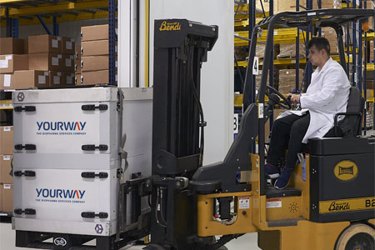Cell And Gene Therapies' Evolving Temperature-Controlled Requirements Call For Specialized Logistics Solutions
By Leandro Moreira, SVP, Corporate Development, Yourway

Emerging cell and gene therapies (CGTs) show enormous potential for treating cancer, neurodegenerative diseases, and a wide range of other conditions. But these benefits present challenges as well, specifically for temperature-controlled logistics because CGTs require ultra-cold temperatures, ranging from -4°C and -20°C to -80°C, -120°C, -150°C, and beyond.
These ultra-cold storage requirements, along with the personalized nature of these products, their direct patient involvement in a circular supply chain, and limited industrial capacity make it challenging to achieve an efficient supply chain. Pharmaceutical companies often must outsource temperature-controlled storage to biorepositories. Biorepositories are primarily collections of human specimens and associated data, but they also include specimen processing, an information management system, storage, and preparation for distribution.
Multiple storage sites at dispersed locations becomes an expensive but often necessary reality. Thus, as the number of approved CGT products continues to grow, biotech companies need to grow their cryogenic storage infrastructure.
This article will focus on the current purposes of biorepositories for CGT and outsourcing to biorepositories as one solution to transitioning to commercial-scale production.
Get unlimited access to:
Enter your credentials below to log in. Not yet a member of Bioprocess Online? Subscribe today.
